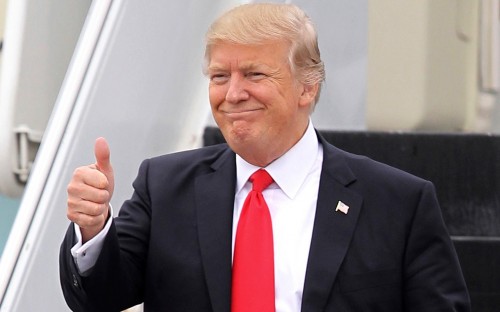Education services company Kaplan Test Prep surveyed 138 schools, including 17 of the top 50 ranked. Some 68% said they were concerned that the current US political climate will have a “negative impact on international student enrolment”.
The survey came after a report from the Graduate Management Admissions Council, which runs the GMAT entry test, found that two-thirds of US MBA programs reported a decline in international student application volumes. GMAC also cited the “disruptive political climate” as one cause for the decline.
Prospective students are concerned about the negative immigration rhetoric of Trump, which is making them feel less welcome in the US, business schools have said.
There are also concerns about access to visas after Trump pledged that companies should “hire American” and he temporarily banned people from several Muslim-majority countries from entering the US, although his recent reforms may favor skilled workers such as business school graduates.
“The bottom line is: Yes, it is definitely a challenge to secure a work visa, but at the same time what we see right now, talking to our immigration attorney, is that there will be reforms coming in that favor MBAs,” said Denise Karaoli, who leads international programming at the Career Development Center at Virginia’s Darden School of Business.
Darden saw a drop in applications to its MBA after the recent violent white nationalist rallies in Charlottesville.
As part of the Kaplan survey, one business school admissions officer said they were concerned about losing Mexican applicants to schools in Canada.
Another business school said that some prospective international students withdrew their candidacies before they completed the applicant evaluation process.
America’s loss seems to be Canada’s gain, as the country’s northern neighbor is reporting a 77% gain in international applications, up from just 46% in 2016.
Noah Teitelbaum, executive director of pre-business programs at Kaplan, said that with many US business schools relying on international students to make up upwards of 30% of their total student population, it’s likely that they are adjusting their recruitment strategies accordingly.
Business schools have taken steps to stress that they are inclusive institutions, with one telling Kaplan: “We have gone out of our way—[we] did a video and sent letters to our current students as well as our connections outside the country—to tell people that we embrace diversity.”
Another said: “We simply share with them that this is uncharted territory for all of us. The economy is very strong right now. Even if all they get is an incredible education and internship, that's an incredible thing to market in their home country.”
One US school said that any decline should only be temporary, citing what happened after September 11, which prompted a decline in applications, followed by a rebound.
Noah concluded: “What American business school leaders can take heart in, is that a volatile political climate doesn’t necessarily lead to a long term cratering of students from abroad, as British business schools continue to see robust growth in international applicants, despite initial Brexit worries.
“The next few admissions cycles will tell us if what we are seeing in the United States right now is a blip on the radar screen or part of a more consequential multiyear trend.”
RECAPTHA :
b5
61
9c
18








